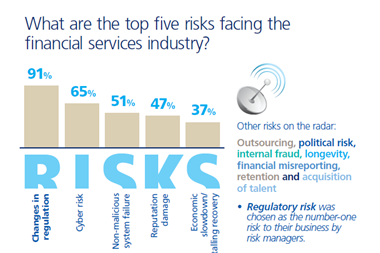Risk managers now have more chance than ever to move up to the board – and StrategicRISK has launched a campaign to help them to get there. As Nathan Skinner writes, it’s all about acquiring the right skills
If they have the right skills risk managers can take advantage of the current heightened emphasis on risk management and corporate governance to propel themselves forward. There is a clear professional opportunity if risk managers are prepared to step up and take the challenge. StrategicRISK is conducting an editorial campaign to equip risk managers with the skills and knowledge to take advantage of this opportunity.
In the latest initiative, StrategicRISK, on behalf of Airmic, conducted a series of interviews with risk managers at the height of their careers. The purpose of the study was to understand the tricks of risk management career success. The full report can be found in our Lessons in Leadership special supplement. To download your free copy of the report click on the Lessons in Leadership link at the bottom of this page.
What follows is a brief summary of some of the key findings. In order to take advantage of the increased focus on their role risk managers will need to do a number of things well. In some of the worst cases they will need to do this in order to avoid the cost cutting axe.
Risk managers who want to excel may need to improve their business knowledge and commercial acumen, they may need to communicate better with the board and overcome some political problems that they might face as a result of performing the role of the conscience of the business.
One of the most important things is for risk managers to be seen as business enabling and not as an obstacle to business. We’ve seen from the experience of some in the financial sector of late that risk managers who are just seen as troublemakers may be on a collision course with their senior managers. See our interview with Paul Moore, the HBOS whistleblower, in tomorrow’s daily to learn a little more about this.
In order to be seen as business enabling risk managers need to talk the same language as the business, which might mean doing some financial training. It’s also important for them to integrate themselves into the business. Rather than functioning purely as a compliance role which is brought into projects to sign off on them at the last minute.
So if risk managers want to become more involved in the business they need to bring solutions not just problems. If you are presenting risks to the board, it is best not to merely bring the risks or problems to their attention and then abdicate responsibility for managing them. One approach is to present risks but at the same time to offer guidance and how to deal with those issues, those could be recommendations or even better innovative solutions to the problems. Risk managers that have bee able to do this well have tended to advance more quickly. Delivering solutions to the business is really what helps risk management fly.
The second key point is to communicate properly with the board. Several group risk managers explain that this needs to be done quickly and succinctly. Don’t get bogged down in the intricacies of an insurance contract, for example. The board’s time is precious so if you have the opportunity to speak in front of them make sure you use that time wisely. It could be that the risk manager is called on to deliver a report to the board during a crisis, such as a major loss. Moments like this can be career defining, risk managers should use them as an opportunity to demonstrate the skills they have and the value that they bring to the role.
It is important not to be too adversarial. At some stage in their careers risk managers will hold an opinion that is directly at odds with other parts of the business. A general example is when a business unit is looking to steam ahead with an investment or new product line, but the risk manager is much more cautious because he or she is aware of the huge risks associated with the undertaking. Risk managers faced with this situation are not alone. Sometimes they may feel compelled to bypass executive management and go directly to a non-executive, like the chair of the audit committee, with their concerns. The advice is to be measured. Try not to compete with the business development department. Rather present your case with the right level of research and analysis, if you can back it up with data to demonstrate what you’re saying even better. Overall try to make sure that senior management are aware of the potential risks as well as the rewards. The idea is not to slam on the brakes aggressively but to remind the business that the brakes are there in case they need them. It may be that the risk manager is still over ruled, but its better that you’ve put your view across and it’s been documented and you’ve done so without belittling or berating other parts of the business.
Ultimately whether or not the organisation is willing to listen to the voice of caution depends on its culture and the tone at the top.





















